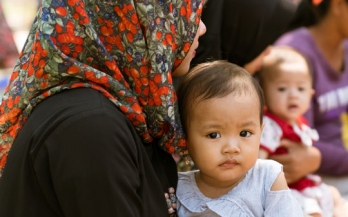

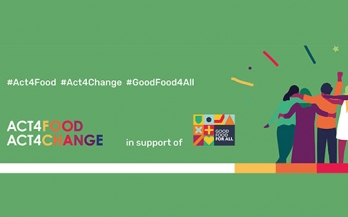
Launch of a global youth-led campaign to transform food systems
Today, a global youth-led food movement was launched, promising to ignite a campaign action to combat hunger, improve health and heal the planet. The #Act4Food and #Act4Change campaign takes the form of a simple pledge and list of actions.
Youth Act4Food Act4Change Launch
Online Webinar, Global
Act4Food Act4Change is a global youth-led movement promising to ignite a campaign action to combat hunger, improve health and heal the planet. The #Act4Food and #Act4Change campaign takes the form of a simple pledge and list of actions. The pledge brings together young people from around the world to focus on personal action and advocacy as a contribution to systemic change.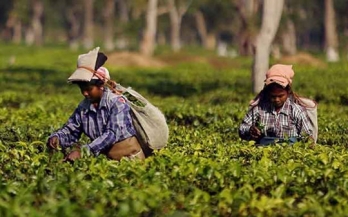
Healthy diets for tea communities - GAIN and ETP partnership
Healthy Diets for Tea Communities is a coalition led by the Global Alliance for Improved Nutrition (GAIN) and the Ethical Tea Partnership (ETP), with funding from with eight leading tea companies to address poor nutrition in tea supply chains in Assam (India), Kenya, and Malawi.
Reflections on UN Food Systems Summit progress to date
Dubbed a "Peoples Summit", it is open to unprecedented engagement in every country, from every sector, and every constituency. It is also dubbed a "Solutions Summit" with a focus on action. I lead one of the five thematic areas or "Action Tracks" (ATs) on "Ensuring access to safe and nutritious foods for all". There are four other ATs, a Science Group, a Champions Group, 4 cross-cutting Levers and the over 100 Summit Dialogues to date.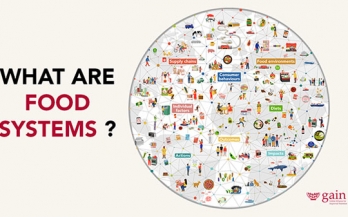
What are food systems?
Our food systems profoundly impact our ability to achieve universal goals of human and planetary wellbeing, with food directly or indirectly linked to several of the United Nations (UN) Sustainable Development Goals. With the UN Food Systems Summit scheduled to convene a wide group of stakeholders from all walks of life in September 2021, food systems are rising up the agenda.What are food systems?
- 21/04/2021
Food Systems are the people, places, and activities that bring us food. They make food available in diverse ways that influence and shape the choices we make about what to eat, when, and how. They are complicated and constantly changing – comprising a host of moving and interconnected pieces. They support many people’s livelihoods.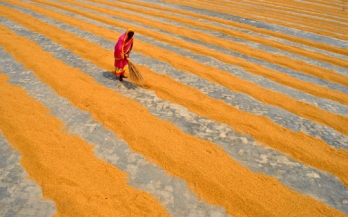
GAIN Working Paper Series 20 - Gender equity and reduction of post-harvest losses in agricultural value chains
- 20/04/2021
High levels of food loss help drive low availability and affordability of nutrient-dense foods such as fresh fruit and vegetables - which, in turn, contribute to poor-quality diets and poor nutrition outcomes in many low- and middle-income countries. Much of this loss occurs at the post-harvest stage, in which women often play a large role, and gender relations shape decisions along agricultural value chains
High level panel on the road towards the 2021 Food Systems Summit
Online Webinar, Global
Following opening remarks by the moderator, panelists will be invited to address the guiding questions (see below). Following these interventions, Member States, observers and civil society are encouraged to ask questions or raise issues in response to the interventions made.
2021 UN Food Systems Summit - Action Track 1 Public Forum
Online Webinar, Global
The ambition of the 2021 UN Food Systems Summit is to launch a collective journey of transforming our food systems to give us the best possible chance of delivering on the 2030 agenda. Everyone has a role to play in this. Only by coming together and challenging one another we can spark new ideas and create meaningful impact.